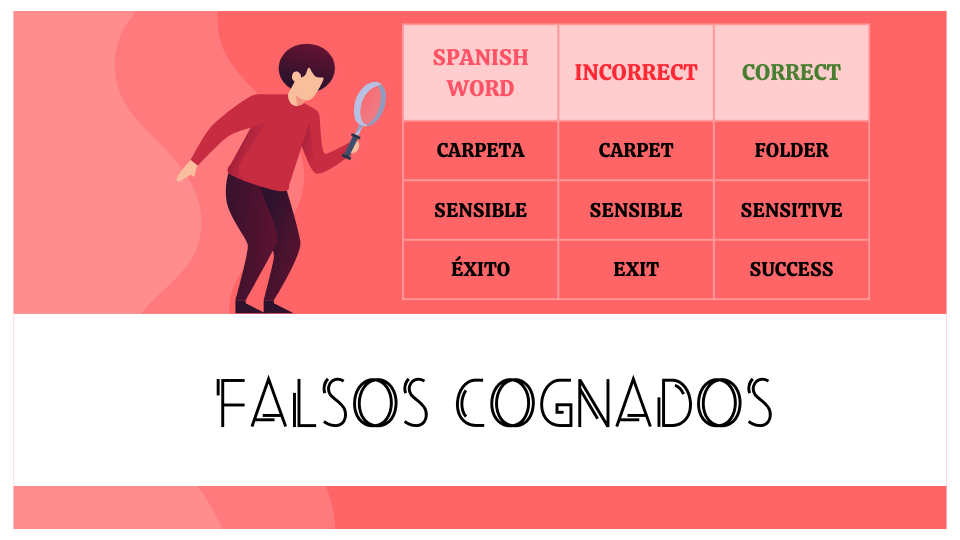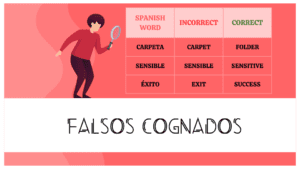False cognates, also known as “false friends,” are words in different languages that appear similar but have distinct meanings. These linguistic look-alikes can be a source of confusion for language learners, as they lead to assumptions about meaning that often result in misunderstandings. These deceptive word pairs arise due to historical and phonetic coincidences, highlighting the importance of context and careful consideration when encountering unfamiliar vocabulary in a new language.
Here are some common false cognates between English and Spanish:
- Actual (English) – Actual (Spanish): In English, “actual” refers to something that is real or existing. However, in Spanish, “actual” means current or present.
- Embarazada (English) – Embarrassed (Spanish): This is a classic example. In English, “embarrassed” means feeling self-conscious or ashamed. In Spanish, “embarazada” means pregnant.
- Library (English) – Librería (Spanish): In English, a “library” is a place where books are kept. In Spanish, “librería” means bookstore.
- Molestar (English) – Molest (Spanish): In English, “molest” carries a negative connotation, meaning to harass or harm. In Spanish, “molestar” simply means to bother or annoy.
- Pie (English) – Pie (Spanish): In English, “pie” is a baked dish. In Spanish, “pie” refers to the foot.
- Sensible (English) – Sensible (Spanish): In English, “sensible” means reasonable or practical. In Spanish, “sensible” refers to something sensitive or emotional.
- Carpeta (English) – Carpet (Spanish): In English, “carpet” is a floor covering. In Spanish, “carpeta” means folder.
- Record (English) – Recordar (Spanish): In English, “record” can refer to a document of achievement or to capture sound. In Spanish, “recordar” means to remember.
- Largo (English) – Large (Spanish): In English, “large” means big. In Spanish, “largo” means long.
- Ropa (English) – Rope (Spanish): In English, “rope” is a strong cord. In Spanish, “ropa” means clothing.
These examples demonstrate the need to be cautious when assuming that similar-looking words in different languages will have the same meaning. Always consider the context and consult native speakers or reliable resources to avoid misunderstandings.


